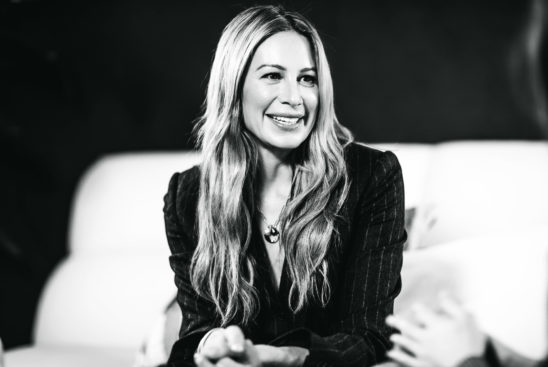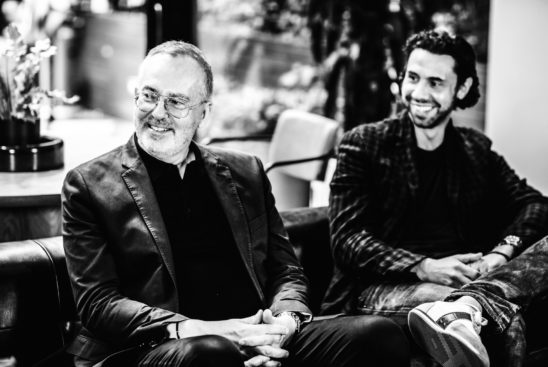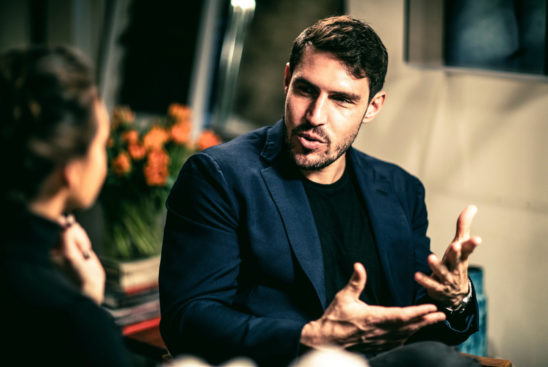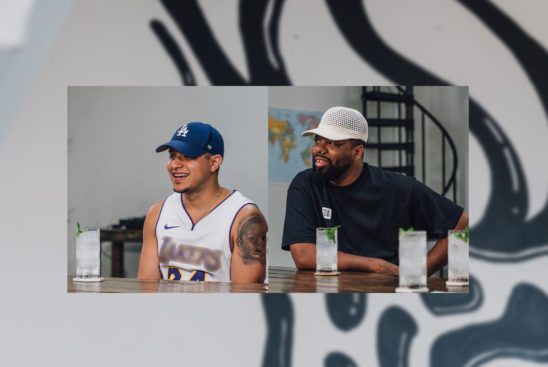Let’s cheers to your film “Trash Fire” that premiered this week at the Sundance Film Festival. So, do you always drink your coffee black?
Cheers! No sugar, no creamers, nothing.
Same, but I’m weird and use a straw.
Not a plastic straw though… Reusable straws? Good. Just making sure.
Does anything make you nervous anymore?
Oh, yeah. I was nervous before this.
No, you weren’t!
Of course I was! I mean, thank goodness, it keeps you on your toes. If you get too complacent and you get too cocky, that’s when you make mistakes.
At this point in your life, do you feel like you’ve made it? Are you content with what you’ve accomplished?
You have to define “it.” I mean, I’ve made some things, I don’t know about the “it.” I feel like I’m just getting started. I feel like I’m in a place right now where I have a better sense of myself, and I have a lot of goals for the immediate future. I feel extremely empowered and excited about the near future and what’s possible. I think that’s just what happens with age. When I was younger, I sort of let the tide move me and now I’m at a point where I can actually stand up on the board and surf it.

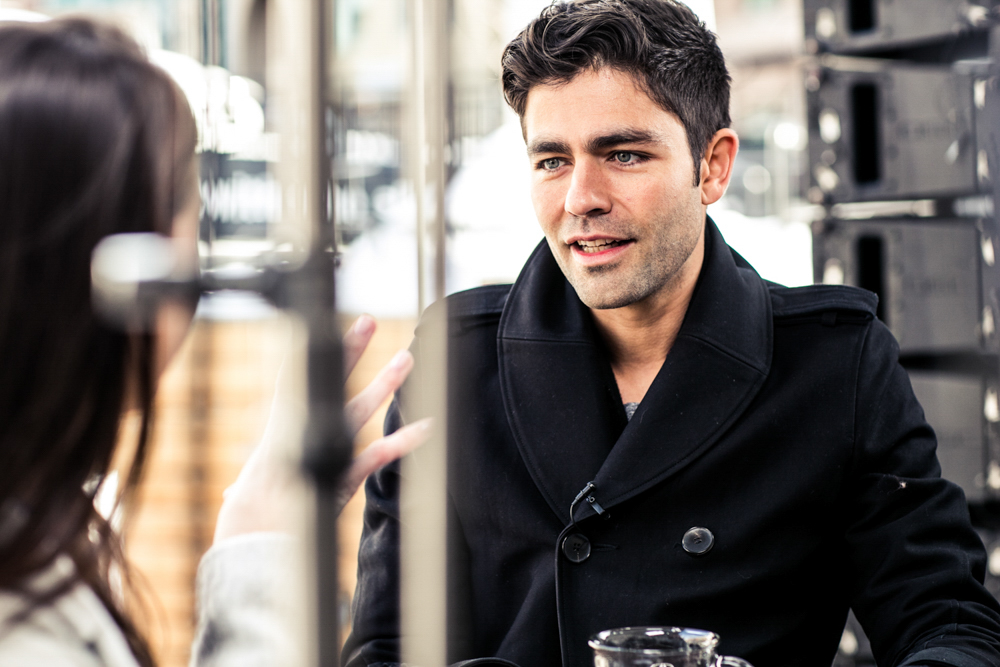
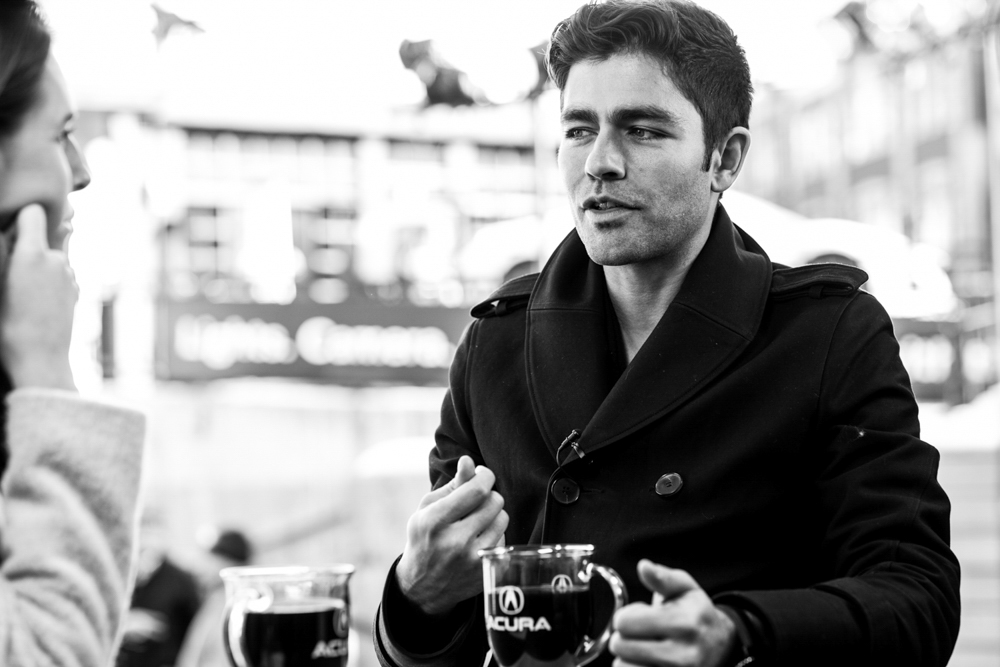
If you could tell your 20-year-old self something, what would you say?
Oh, man. That’s a tough one. I’d just be like, “Keep at it, man. Have as much fun as you can.” You know, it’s funny when people ask me for advice. My advice to young people is always just, “Get out there and do it. Be more independent.” [If someone] asks me for advice, it means they’re not going out there and getting dirty and making a mess and learning from their mistakes. Go out and make mistakes. Go make more mistakes. Take more risks, because when you’re younger you can recover from those risks a lot sooner.
Did anyone ever give you good advice about the film industry?
None that I listened to, and I had to learn on my own the hard way.
What is something that people don’t realize takes place when making an independent film?
That it’s a mini miracle – if not a major miracle – that every film exists. Whenever I see a film, whether I like it or don’t like it, I always pay a moment of respect to the fact that it’s actually finished and it’s being projected onto a screen or that filmmakers were able to get it done. There are so many moving parts. It’s very difficult to make a film, and kudos to anyone that can get it done. The next step is to make it good – that’s the harder task – but just at the bare minimum, being able to get it done is a remarkable thing.
I’m always interested to learn how creative people connect and collaborate. How did you meet the director of “Trash Fire,” Richard Bates Jr.?
One of my producing partners read the script before I did and she called me and said, “It’s an interesting script and it’s a pretty intense and dark, but I think you’re going to love it. It’s right up your alley.” So she sent it to me, I read it and I was like, “Definitely up my alley.” It’s unlike anything I’ve done in a while, but it gets back to my roots. I’ve done a lot of independent films – some that are pushing the edge – so it was perfect for me, especially now that I’m looking to do a lot of new and interesting projects. So I connected with Richard Bates on Skype. That’s the way a lot of these meetings happen these days – people are all over the world. We just Skyped and talked about the script. We talked about his vision and immediately – because I want to support independent thinkers and artists – I was in. Then the script itself was just that much more compelling.
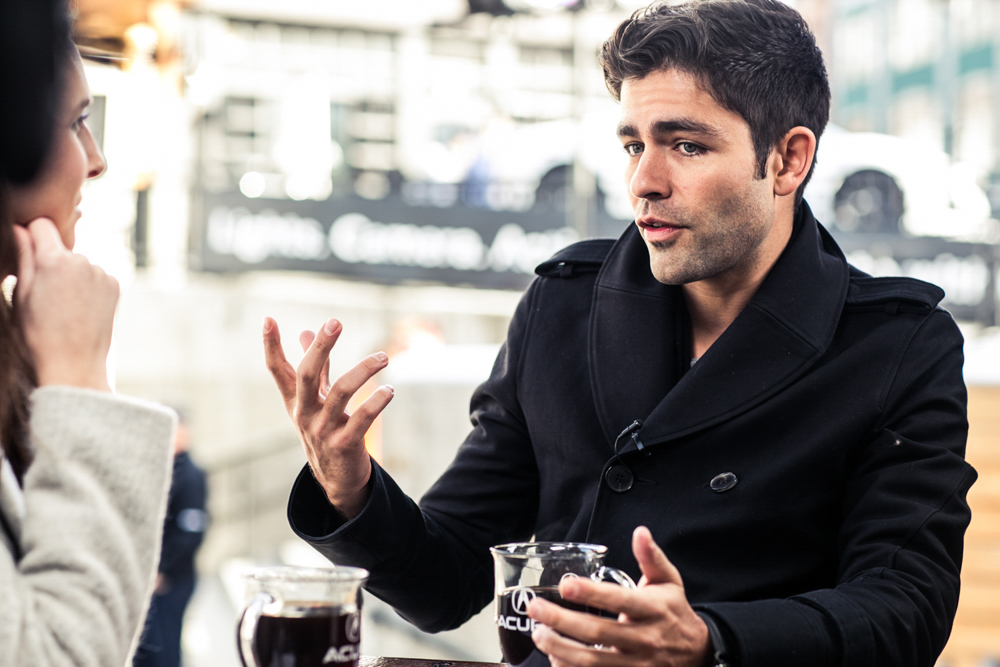
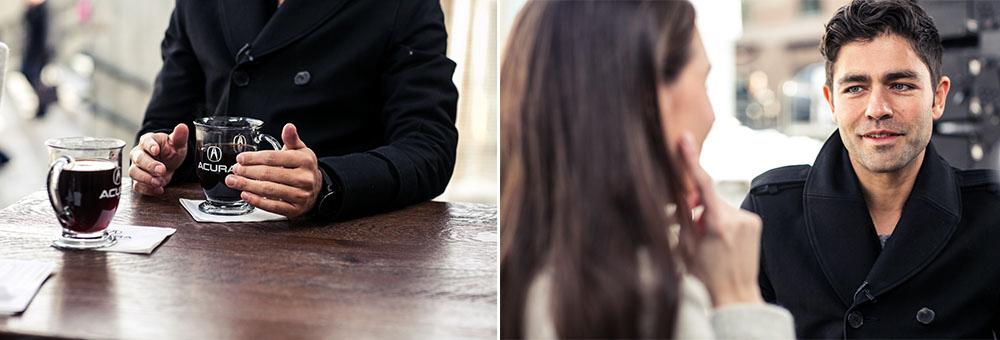

When did you wrap filming?
It came together so quickly; we shot it in seventeen days. I mean that’s guerrilla filmmaking for you. I think that’s a testament to Richard Bates’ vision and his talent, really. He was able to work in real-time, overcoming real obstacles and make an incredible film. He’s a really talented guy. For example, in the final scene, we had all of these things planned, all of these effects, and because it was so low budget, it didn’t come together the way he had wanted. So he had to adapt it in real-time given the limitations, and what he created with the end product is better than it would have been [without the limitations].
What would you say is the biggest key to storytelling?
That’s a big question. I think you definitely need to keep the audience guessing, but also let them in on the secret. Give them an opportunity to feel like they’re part of the unfolding of the story. Let them be a couple steps ahead but not too far ahead. Always keep them guessing but then cue them in. It’s not an easy task.
You act, produce and direct. Have all facets of filmmaking come easy to you or was anything a difficult transition?
I’ve been making films with friends since I was in high school, and we never had a distinction between who the director or producer was. It was a small group of us just trying to make a film, and so we often played many roles and wore many different hats. It was very egalitarian in that respect. There was not a lot of hierarchy, it was more just about, “How do we get it done?” So, for me, it really wasn’t that difficult. I love film and I just want to do whatever I can to make film happen.
Was there a specific moment you fell in love with filmmaking?
Certainly. I’d say probably second grade. I remember my friends and I were making a video, and we were clearly in second grade, because we were pretending to be news anchormen and we were talking about a fart that was going to blow us away… you know, like a cold front. It was a fart front and it was blowing everybody away. So I was probably really young [when I fell in love with film], but I’m still just as immature.
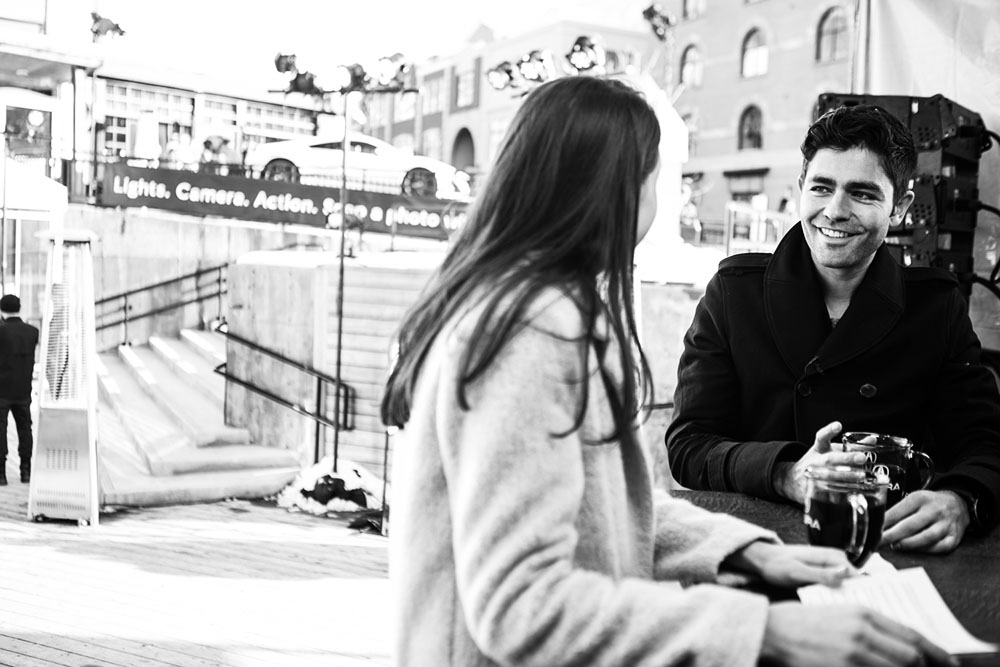
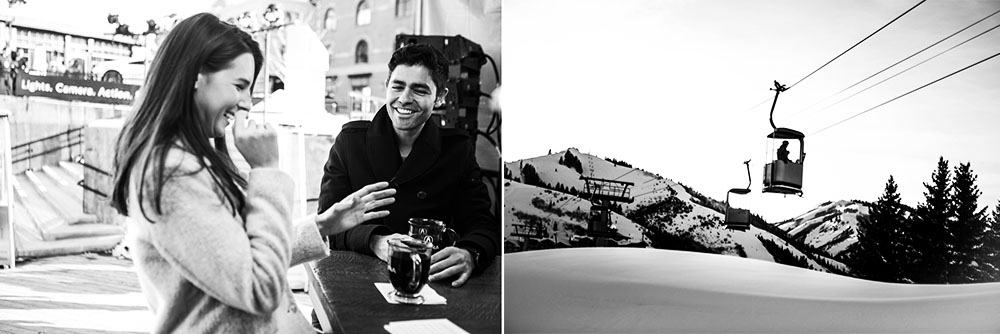
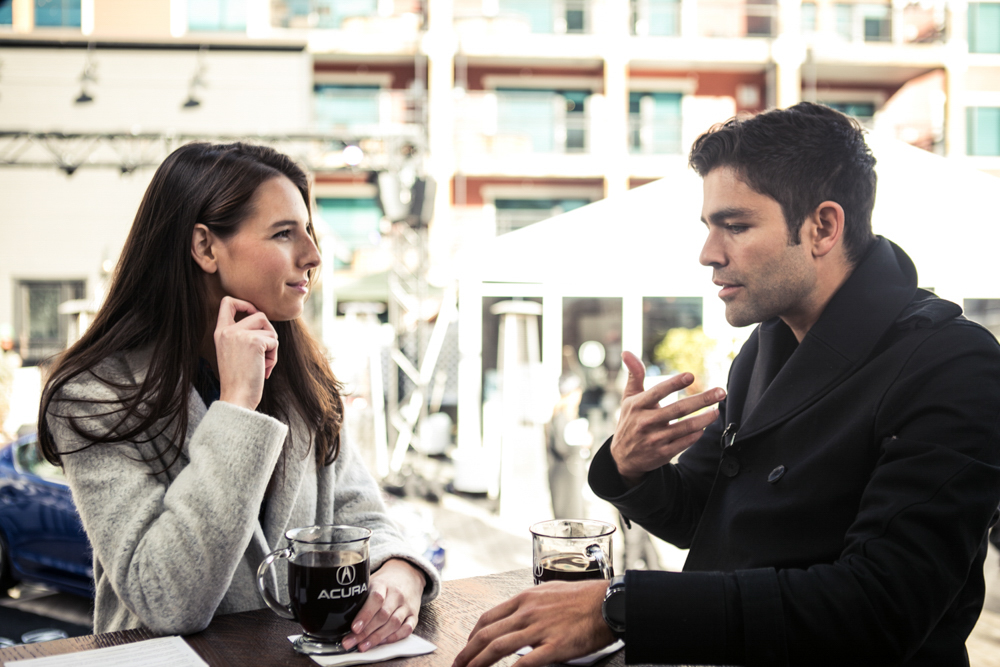
How do you manage to stay present when life gets busy? Do you get easily overwhelmed?
The times that I really get overwhelmed are when there’s a major event and I have to spread myself thin throughout a whole network of people – when I’m in “shaking hands and kissing babies” mode. I really enjoy connecting with people, but in those circumstances I don’t feel like I’m making any deep connections. It’s just a lot of superficial pleasantries that actually make me feel really lonely. You know they say, “It’s lonely at the top,” because I think it can be when you’re just superficially connecting with people but not deeply or meaningfully.
What do you do to get through those moments?
You breathe through it. You breathe through it and make sure that you don’t touch anything with the hand that you’re shaking all those other hands with, because you have no idea where they’ve been. Keep some Purell [handy]. I’ve actually been trying to bring back the [fist] pound…
Do you get much sleep?
Oh, never enough. Never enough. I try and do eight [hours], I usually get six, but then I like to take naps. I’m a big nap fan.
You recently launched the Lonely Whale Foundation and we hear you have a Chicago tie? Our team is from Chicago.
I’m a very big fan of the Academy For Global Citizenship that is on the South Side of Chicago and serves an under-served community. It’s a charter school that brings sustainable ideas to young people who wouldn’t otherwise have an opportunity. There are chickens, there’s a garden program, there are wind turbines… They learn to be stewards of the planet in a community where they’re all but abandoned. It’s really shown that anybody can have an opportunity to embrace true wisdom and education. It’s an incredible program that’s actually creating the Lonely Whale Foundation curriculum, and we’re going to pilot our curriculum for K-2 at that school. We’re using our hero mascot, the Lonely Whale, as the inspiration for young people to connect with not only the oceans but also marine wildlife, and to understand that the plight of whales and all of marine wildlife is parallel to ours. The wants and needs of marine wildlife are the same as ours; we’re in parallel paths to success.
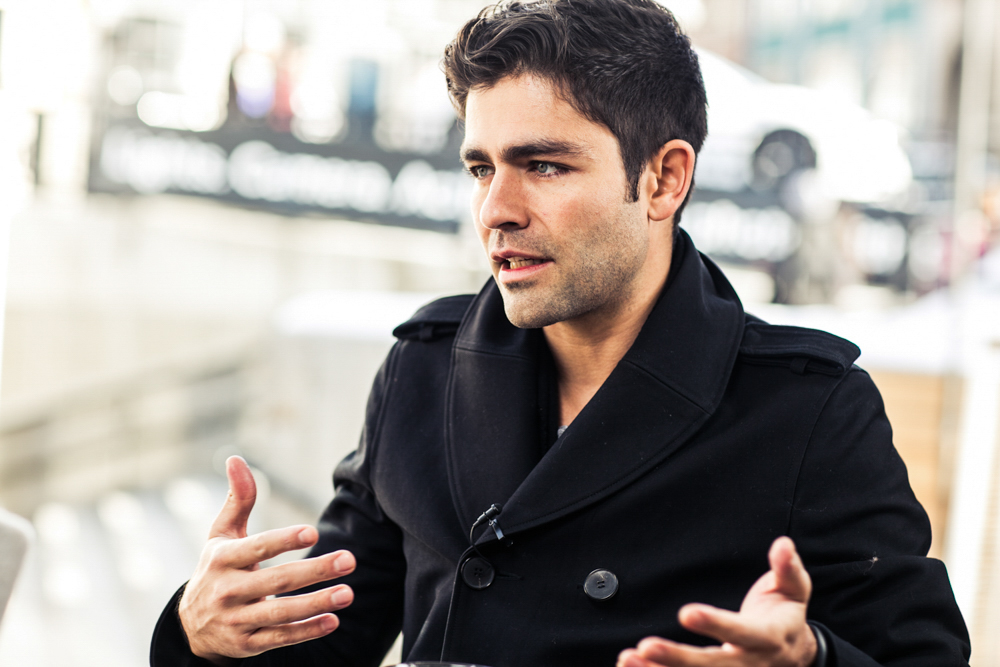

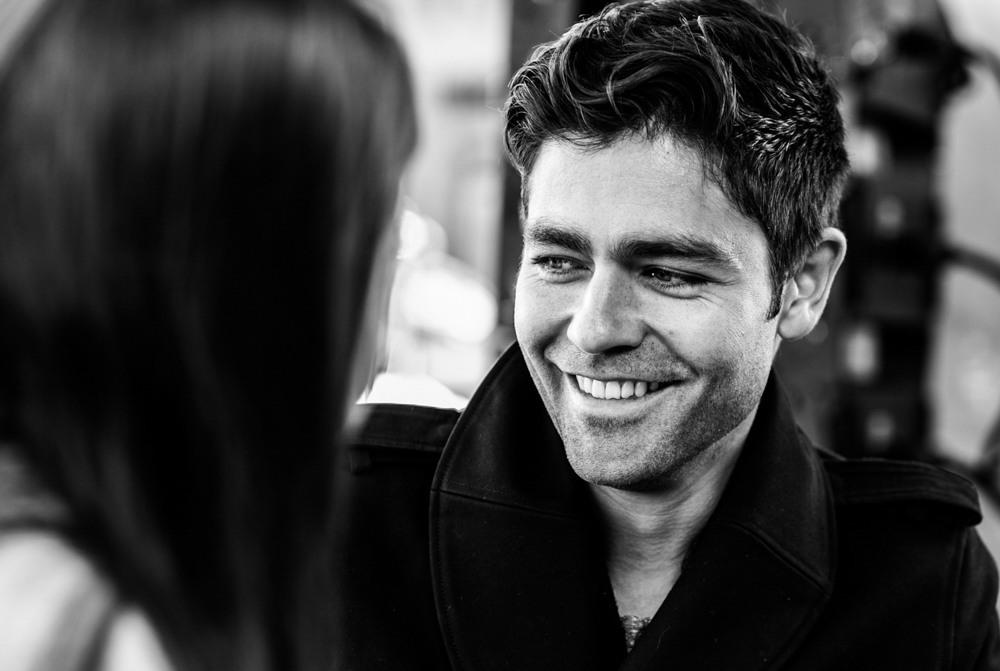
Is it a deal-breaker when a girl isn’t on board with all of your initiatives?
I do tend to surround myself with like-minded people who care about things other than themselves. I think selfishness is a deal-breaker and I think when people are so myopic and narrow-minded or they have their head in the sand, it’s not terribly attractive.
Who was your entourage was when you were six years old?
Six years old, that’s like kindergarten? I’ll say Peter; he was my partner in crime when we were making fart movies back then. My cousins, I was very close with my cousins back in the day and that girl Morgan… curly blonde hair. She was in the third grade.
What’s Morgan doing now?
I’m sure she’s doing great things.
How would you describe Sundance in one sentence?
New horizons.
Have you met Robert Redford?
I have. Enigmatic. I don’t have any good specific stories other than just meeting him and being in awe and being happy that I was in his presence.
What is something I can’t leave Park City without doing?
Snowball fight.
If you could have a drink with anyone, who would it be?
Albert Einstein. I’d probably want to just be in his lab and see how he built things and how he created things and learn about time travel.

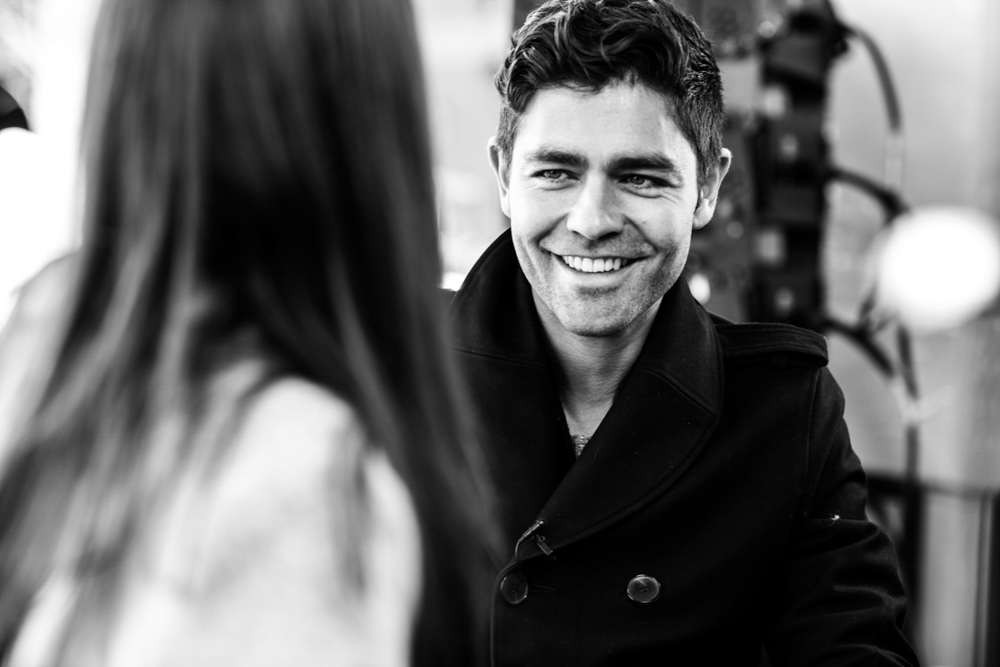
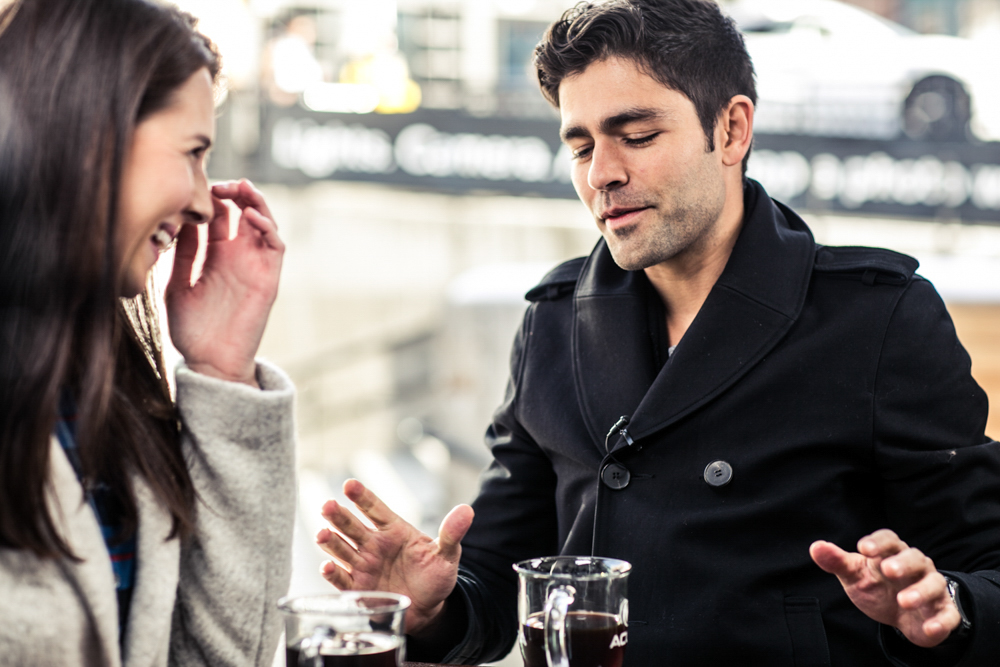
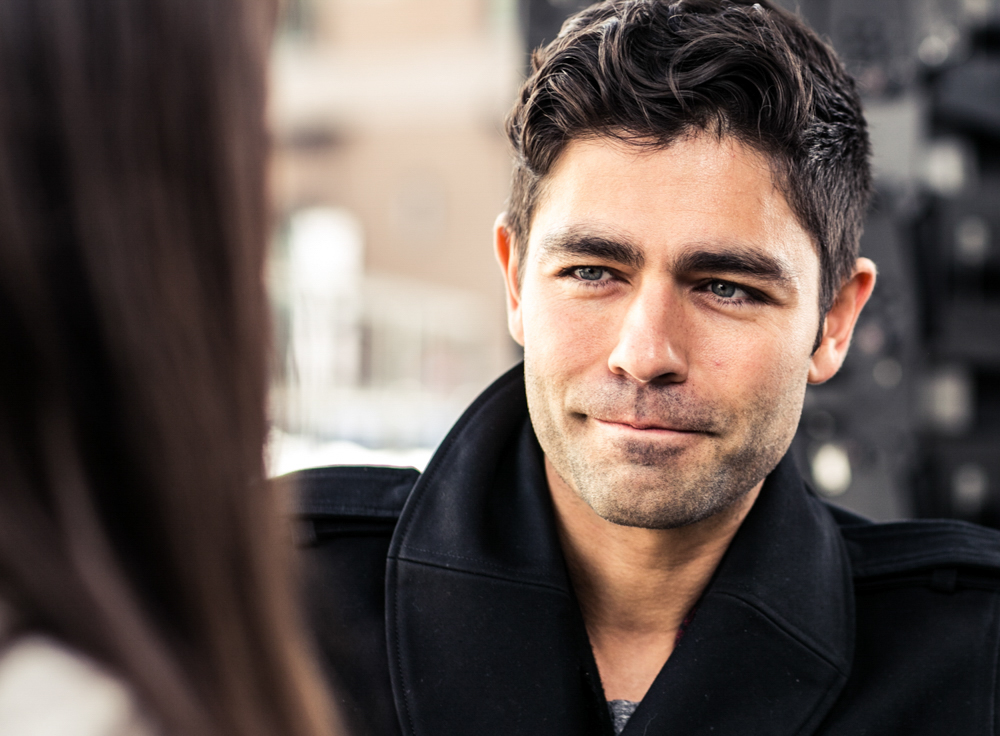
KIRSTEN MICCOLI PHOTOGRAPHY / A DRINK WITH in the Acura Studio
CLICK HERE TO SEE ALL DRINKS AT THE 2016 SUNDANCE FILM FESTIVAL
Did you enjoy this feature? Subscribe to our newsletter and never miss a drink, we promise we’ll never spam you!

